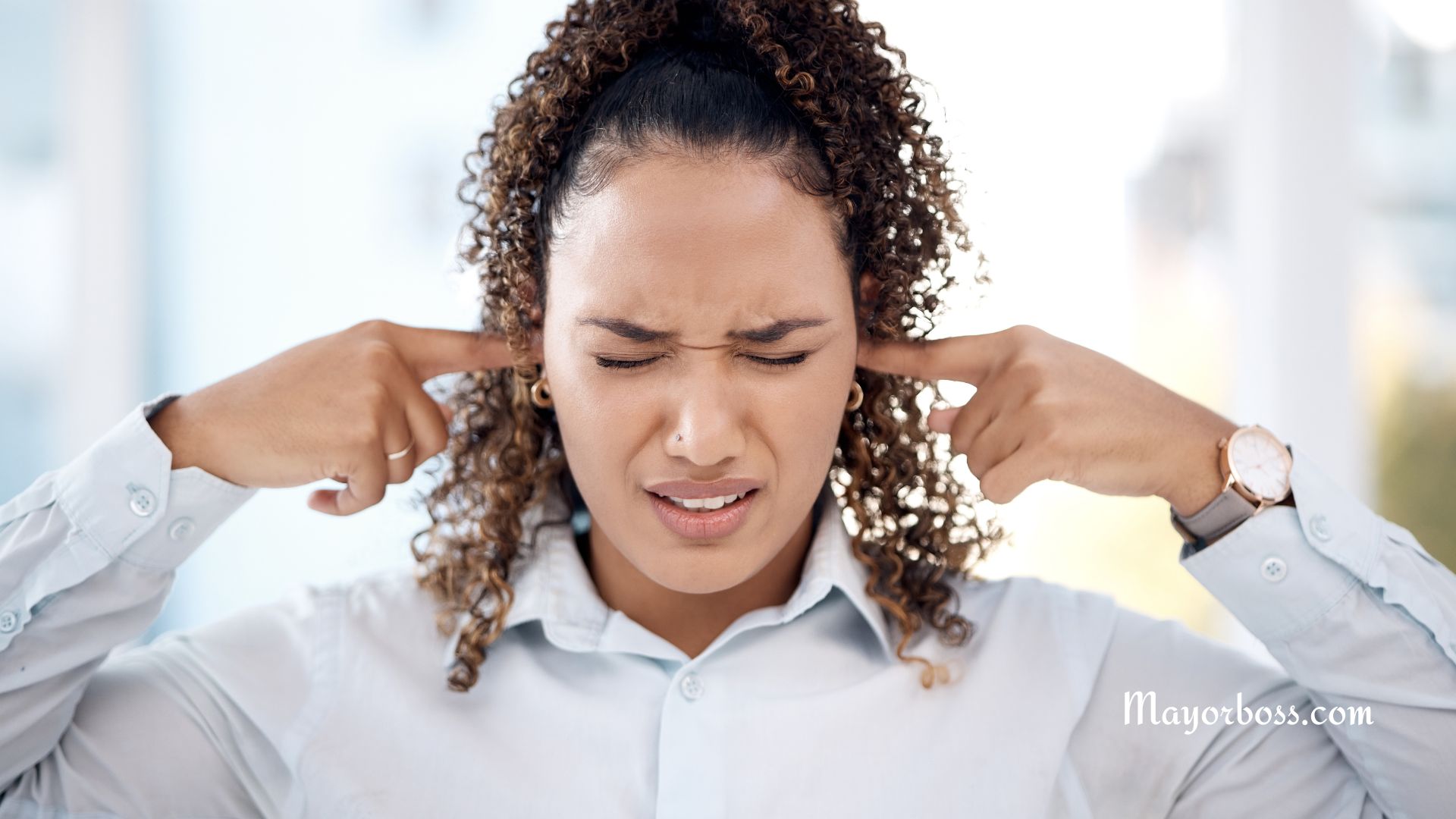What Could Be Causing the Popping, Clicking, or Crackling in Your Ear?
Have you ever experienced a strange popping, clicking, or crackling sound in your ear? It’s a peculiar sensation that can leave you puzzled and perhaps a bit concerned. In this article, I aim to provide you with some clarity on what could cause popping, clicking, or crackling sounds in your ear. You’ll discover the common causes, what you can do about them, and when you might need to see a doctor.
Let’s get started!!!
The Common Causes of Ear Noises

Earwax Buildup Could Be the Culprit
One of the most frequent causes of these sounds of ear popping or crackling sounds is earwax buildup. You see, earwax, or cerumen, is a natural substance produced by your ears to protect the ear canal from dust, debris, and microorganisms. However, when too much earwax accumulates, it can harden and block the ear canal. This blockage can lead to various sounds like popping or crackling.
Jaw Movements and Chewing Could Be the Reason
Sometimes, the simple act of moving your jaw or chewing can lead to clicking or popping sounds in your ears. This is usually harmless and occurs because of the close proximity of the jaw to the ear canal.
Eustachian Tube Dysfunction Can Make You Feel Uncomfortable
Another common cause is Eustachian tube dysfunction. The Eustachian tube connects your middle ear to the back of your throat and helps regulate ear pressure. When this tube is blocked or doesn’t function properly, it can cause popping or clicking sounds. This often happens when you have a cold, allergies, or sinus infection, as these conditions can lead to inflammation and blockage of the Eustachian tube.
Changes in Altitude Can Create Ear Noises
Have you ever noticed these noises while flying or driving up a mountain? Changes in altitude can cause pressure differences between the inside and outside of your ear. Your Eustachian tube works to equalize this pressure, and sometimes it can create popping sounds during the process.
Temporomandibular Joint (TMJ) Issues Can Affect Your Ears
The temporomandibular joint, located near your ears, can also be a source of these sounds. TMJ disorders can generally cause a range of symptoms, including ear pain, clicking or popping sounds in the ear, and even difficulty chewing.
Ear Infections and Inflammation Are Common Causes
Ear infections, especially in the middle ear, can cause various sounds, including popping, clicking, or crackling. Inflammation from an infection can affect the Eustachian tube or other parts of the ear, leading to these noises.
When Should You Be Concerned?
Persistent or Severe Ear Noises Need Medical Attention
While occasional ear noises are usually harmless, persistent or severe symptoms should be evaluated by an otolaryngologist. If you experience pain, hearing loss, dizziness, or discharge from the ear, it’s crucial to seek medical attention.
Tinnitus Might Be a Sign of an Underlying Condition
Tinnitus, a condition generally characterized by ringing, buzzing, or other noises in the ear can sometimes present with popping or clicking sounds. If these noises are accompanied by tinnitus, it’s worth discussing with a doctor, as it could indicate an underlying condition such as hearing loss or an ear disorder.
What Can You Do About It?
Home Remedies and Simple Solutions Often Help
For mild cases of ear noises, simple home remedies can provide relief. For example, swallowing, yawning, or chewing gum can help open the Eustachian tube and equalize ear pressure. Using over-the-counter ear drops can soften earwax, making it easier to remove.
Professional Cleaning and Treatments Might Be Necessary
If earwax buildup is the issue, professional cleaning by a healthcare provider might be necessary. In cases of Eustachian tube dysfunction, decongestants, antihistamines, or nasal sprays can reduce inflammation and improve tube function.
Conclusion
To sum up, the popping, clicking, or crackling sounds in your ear can be caused by various factors, ranging from earwax buildup to Eustachian tube dysfunction. While these noises are often harmless and can be managed with simple remedies, it’s important to pay attention to persistent or severe symptoms and seek medical advice from an otolaryngologist or other health professional when necessary.
